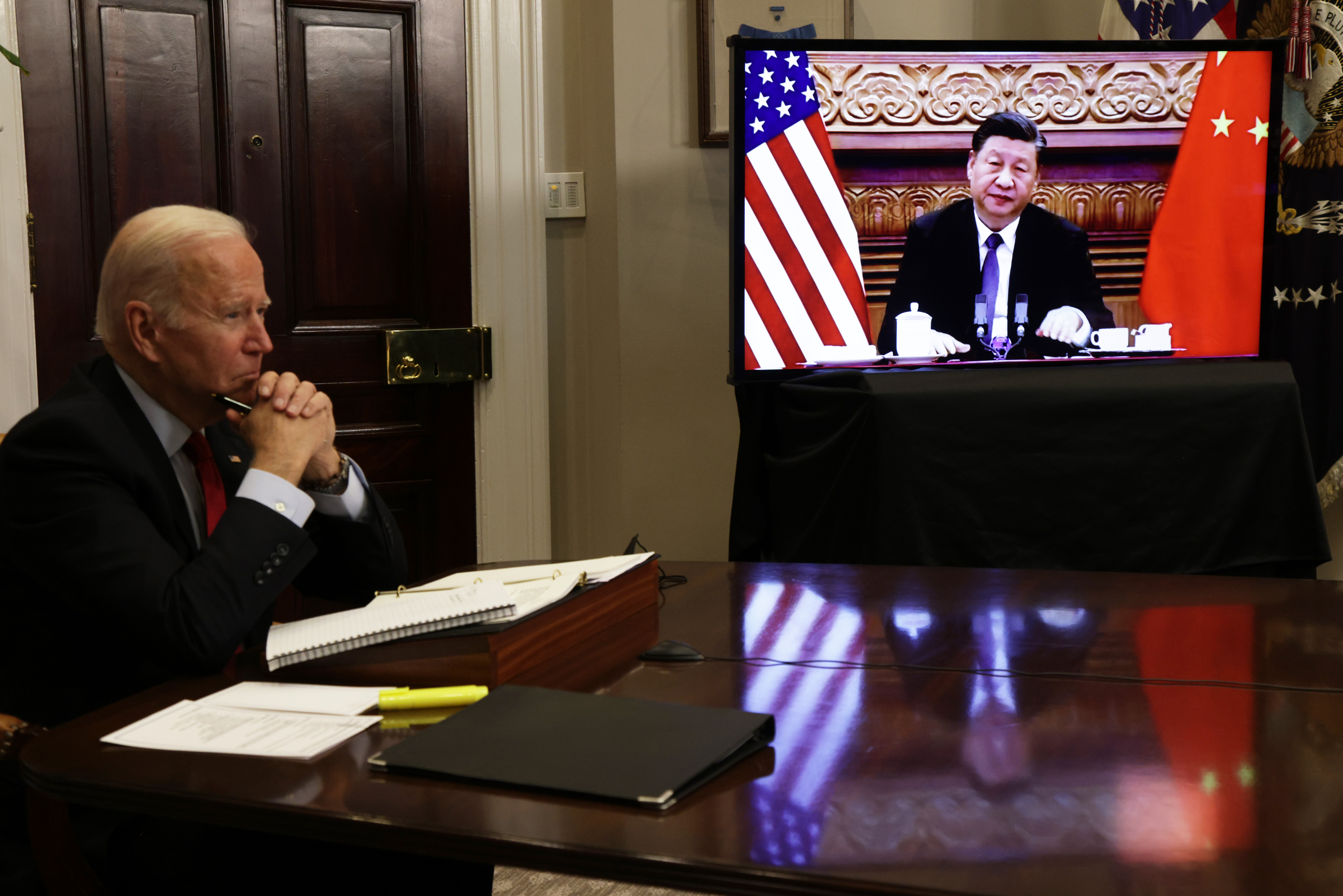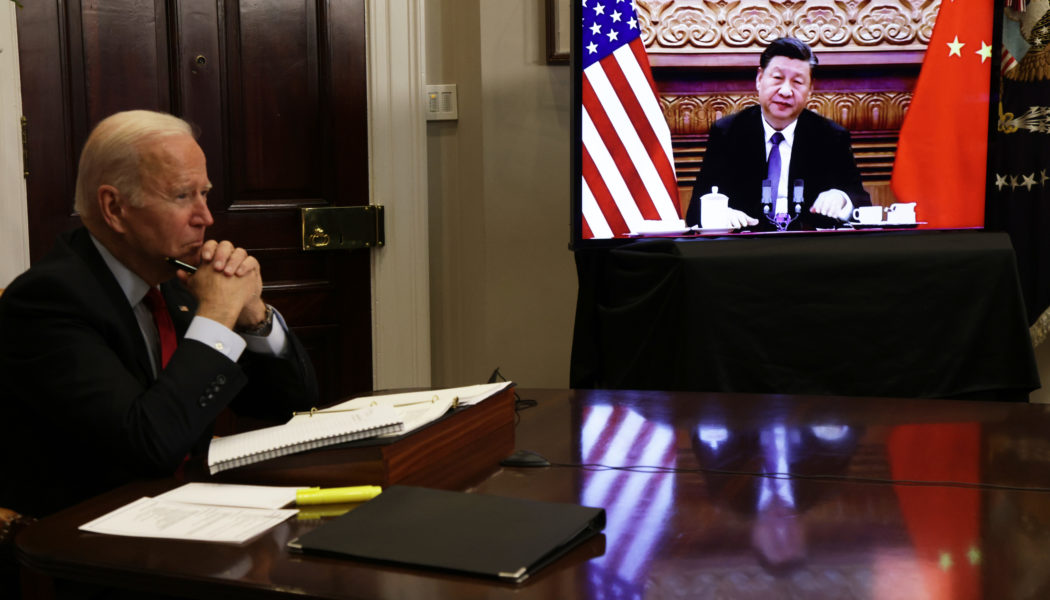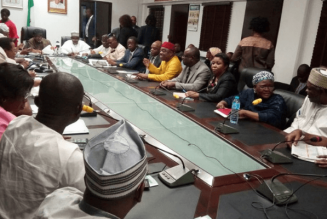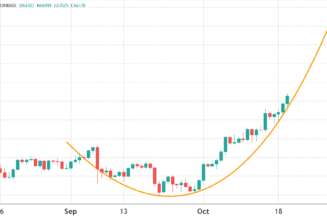
Biden’s task: Restore U.S. credibility on climate action to counter China’scourting of developing countries grappling with existential risks posed by a warming world. At the same time, he’ll be working to restore some level of China-U.S. cooperation on climate, after Chinese President Xi Jinping suspended a bilateral effort following House Speaker Nancy Pelosi’s trip to Taiwan in August.
“There is no solution to the problem of climate change without China,” White House climate envoy John Kerry said on Wednesday. “We stand ready to sit down with China on the climate issue and work together to solve what is not a bilateral issue, but what is a universal, global, existential issue.”
That’s ambitious given that Kerry admitted last month that meaningful dialogue with his Chinese counterpart, Xie Zhenhua, had stalled.
But Biden has one advantage at COP: Xi won’t be there.
That will make it easier for Biden to stake out the diplomatic high ground as a leader who’ll prioritize climate action despite strained bilateral relations. And he can point out to fellow heads of state in person the hundreds of billions of dollars in investments in clean energy sources embedded in the Inflation Reduction Act that he signed in September as proof of his resolve.
“The geopolitical competition can actually be helpful…the U.S. doing more [on climate] can lead China to do more,” argued Alexandra Hackbarth, a China expert at the D.C.-based climate change think tank E3G.
Biden is playing catchup because Beijing — despite its stubborn reliance on heavily polluting coal at home — has made climate a key prong of its diplomatic outreach for years. Xi announced in 2015 the creation of a $3.1 billion fund to help developing countries mitigate the effects of climate change. Chinese Vice Foreign Minister Xie Feng launched a China-based facility in April dedicated to boosting the capacity of Pacific island countries to adapt to rising sea levels.
Biden’s decision to attend COP27 has already raised expectations of a new level of U.S. engagement on climate action.
“Presidents don’t normally show up at these things unless they are bringing something with them,” said Joanna Lewis, an associate professor at Georgetown University and an expert on China’s climate policies.
What Biden is likely bringing is cash to support one of COP27’s key objectives: funding for mitigation and adaptation initiatives by developing countries hardest hit by a rapidly warming world. “We are doing major lifting with respect to providing new climate finance,” Kerry said. That sets the stage for Biden to either increase the $11 billion in annual funding he committed for those purposes in 2021 or advance its rollout ahead of the 2024 target date.
But Biden is trying to prod and coax China on climate change measures at a time when relations between the two countries are continuing to deteriorate. The U.S. has accused China of predatory trade practices, pervasive espionage targeting U.S. firms and of accelerating plans for a military invasion of Taiwan. China rejects those accusations and blames the U.S. for adopting a “cold war mentality” that is stoking bilateral hostility
Chinese Foreign Minister Wang Yi hinted last week in a call with Blinken that China wants bilateral relations on a “stable development track.” But he laced that comment with an accusation that the U.S. was pursuing “containment and suppression” of China.
Biden needs to be conciliatory about China to avoid alienating senior officials of developing countries at COP27 who are impatient with U.S.-China bilateral acrimony hampering meaningful cooperation. We have “urged them to demonstrate what we are used to of leadership from both of them,” Wael Aboulmagd, Egypt’s special representative to the COP27 presidency, told reporters on Friday.
But the GOP on Capitol Hill will be watching carefully.
Rep. Michael McCaul (R-Texas), ranking member of the House Foreign Affairs Committee, warned that GOP members will closely monitor Biden’s performance at COP “to see whether he sells out America for a politically correct talking shop with Xi’s dictatorship.”
The Chinese government hasn’t shared its priorities for COP27. But it is less well-positioned to burnish Chinese Foreign Ministry spokesperson’s Wang Wenbin’s claim last month that “China is a doer on ecological progress and climate governance.”
And Xi has climate action credibility problems due to both his announcement last month that China will increase the production of fossil fuels and his lack of follow-through on his earlier climate promises.
Xi made commitments in 2020 to peak China’s carbon emissions by 2030 and reach carbon neutrality by 2060. But he has failed to provide a detailed road map and timetable on how China will meet those goals. That might be because of the daunting price tag. The World Bank warned last month that China would need to invest up to $17 trillion in the transport and power sectors alone to hit carbon neutrality. Although Xi promised last year to begin cutting China’s dependency on coal in 2026, a surge in construction of coal-powered plants across China makes it unlikely he’ll meet that goal.
Domestic economic strains caused by Russia’s invasion of Ukraine will also likely limit the Chinese government’s willingness to make any significant new climate action commitments at the conference.
“The politics for that are pretty difficult,” said Li Shuo, a Beijing-based policy adviser at Greenpeace East Asia. “We have a hot war happening right now and food and energy crises across the world – that reduces the appetite for [China] to commit more to carbon emission reductions.”
But climate experts agree that U.S.-China cooperation is essential to meet the 2015 Paris agreement goal of capping global warming to 1.5 degrees Celsius by the end of the century.
Lewis at Georgetown University sees hope in the fact that unofficial lower-level COP27 preparatory discussions between U.S. and Chinese environmental experts have continued since August. And those contacts might help pave the way for an official resumption of U.S.-China climate cooperation in the coming week.
“I think it’s very likely that they will resume engagement either before or at the COP just because I think it’s in China’s self-interest to be engaging with the United States,” Georgetown University’s Lewis said.
Others say that a resumption of bilateral climate dialogue is unlikely.
“Climate is a global collective action problem…but we’re starting to see indications that China is trying to go it alone,” said Cecilia Han Springer, assistant director of Boston University’s Global China Initiative and an expert on Chinese industrial decarbonization. “It makes me worry about the future U.S.-China climate cooperation.”
A decoupling of U.S.-China cooperation due to worsening bilateral tensions could effectively kneecap global efforts to meet the goal of limiting global warming.
“If each country is just doing their own thing [on climate]…we are basically in a car crash situation,” said Greenpeace’s Li.
Karl Mathiesen contributed to this article.
[flexi-common-toolbar] [flexi-form class=”flexi_form_style” title=”Submit to Flexi” name=”my_form” ajax=”true”][flexi-form-tag type=”post_title” class=”fl-input” title=”Title” value=”” required=”true”][flexi-form-tag type=”category” title=”Select category”][flexi-form-tag type=”tag” title=”Insert tag”][flexi-form-tag type=”article” class=”fl-textarea” title=”Description” ][flexi-form-tag type=”file” title=”Select file” required=”true”][flexi-form-tag type=”submit” name=”submit” value=”Submit Now”] [/flexi-form]









